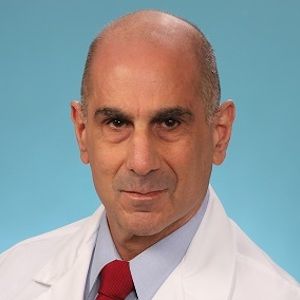Article
Nonfatal MI Not Established Surrogate for Mortality in CAD Treatment
Author(s):
Data show nonfatal MI did not meet the threshold for surrogacy for all-cause mortality or CV mortality.
David L. Brown, MD

A lack of evidence on whether nonfatal myocardial infarction (MI) may be a surrogate for all-cause or cardiovascular mortality in patients with or at risk for coronary artery disease (CAD) was the basis for a recent study.
Led by David L. Brown, MD, Cardiovascular Division, Washington University School of Medicine in St Louis, a team of investigators observed in the meta-analysis showed no establishment of nonfatal MI as a surrogate for all-cause or CV mortality in randomized clinical trials of interventions to treat or prevent CAD.
What were the methods?
Brown and colleagues searched PubMed from inception until December 2020 for RCTs of interventions to treat or prevent clinical manifestations of CAD published in the New England Journal of Medicine, JAMA, or The Lancet.
The included studies were required to have randomization to an investigational treatment or treatment strategy or a placebo or active control. Other inclusion criteria required a minimum sample size of ≥1000 patients with at least 24-months of follow-up.
The main outcomes in the trial included nonfatal MI, all-cause mortality, and CV mortality. It was noted that nonfatal MI data reflected the number of adjudicated MI events based on the definition of MI in each trial.
Investigators assessed correlations between nonfatal MI and all-cause or CV morality for surrogacy using the coefficient of determination. Additionally, subgroup analyses based on study subject (primary, secondary prevention), era of trial (before 2000, 2000-2009, and 2010-), and follow up duration (2.0 - 3.9, 4.0 - 5.9, and ≥ 6.0 years) were performed.
What were the findings?
Investigators identified a total of 1025 RCTS for screening, with 298 meeting inclusion. Then, data extracted was completed for 144 articles randomizing 1,211,897 patients.
Data show there were 24 primary prevention, 57 mixed primary/secondary prevention, 46 secondary prevention, and 17 revascularization RCTs. Additionally, by time period, there were 62 trials with first patient enrollment before 2000, 44 trials between 2000 - 2009, and 38 trials in 2010 and after.
Further, in the pooled analysis of 144 trials, the randomization to investigational treatments reduced the rate of nonfatal MI from 4.2% to 3.7% (OR, 0.87; 95% CI, 0.85 - 0.90) and reduced all-cause mortality from 7.3% to 7.0% (OR, 0.95; 95% CI, 0.93 - 0.97).
Brown and colleagues observed nonfatal MI did not meet the threshold for surrogacy for all-cause mortality (R2 =0.02; 95% CI, 0.00 - 0.08) or CV mortality (R2=0.11; 95% CI, 0.02 - 0.27).
In addition, nonfatal MI was not a surrogate for all-cause mortality in primary (R2= 0.01; 95% CI, 0.001 - 0.26), secondary (R2 = 0.03; 95% CI, 0.00 - 0.20), and mixed primary and secondary prevention (R2 = 0.001; 95% CI, 0.00 - 0.08).
Then, in trials enrolling patients before 2000 (R2 = 0.22; 95% CI, 0.08 - 0.36), between 2000 - 2009 (R2 = 0.02; 95% CI, 0.00 - 0.17), and from 2010 and after (R2 = 0.01; 95% CI, 0.00 - 0.09), investigators observed nonfatal MI was not a surrogate for all-cause mortality.
Nonfatal MI was also not a surrogate for all-cause mortality in RCTs with 2.0 - 3.9 (R2 = 0.004; 95% CI, 0.00 - 0.08), 4.0 - 5.9 (R2 = 0.06; 95% CI, 0.001 - 0.16), or 6.0 or more years of follow-up (R2 = 0.30; 95% CI, 0.01 - 0.55).
Takeaways
“Inclusion of nonfatal MI as an end point in RCTs may still be justified based on its association with impaired quality of life and increased use of healthcare re- sources, but not based on its surrogacy for mortality,” investigators wrote.
The study, “Assessment of Nonfatal Myocardial Infarction as a Surrogate for All-Cause and Cardiovascular Mortality in Treatment or Prevention of Coronary Artery Disease,” was published in JAMA Internal Medicine.





